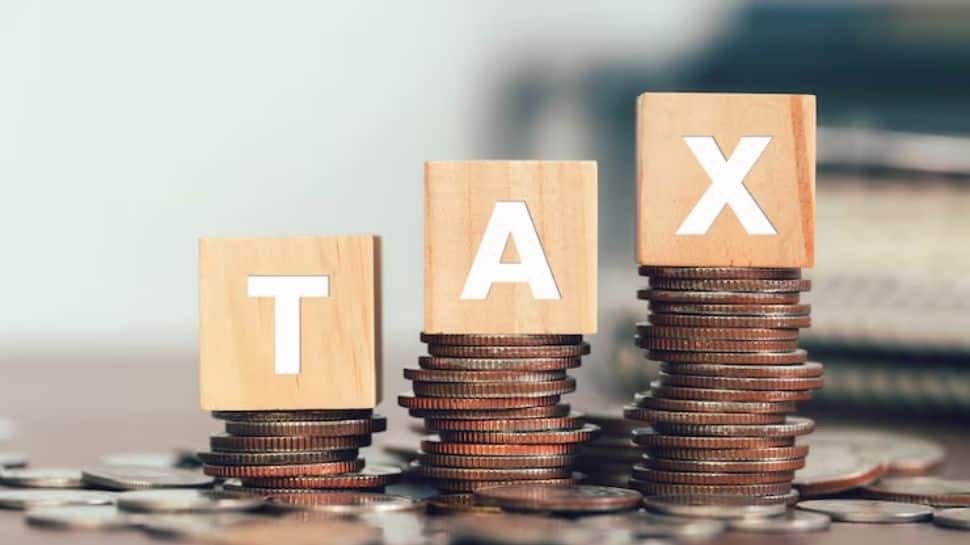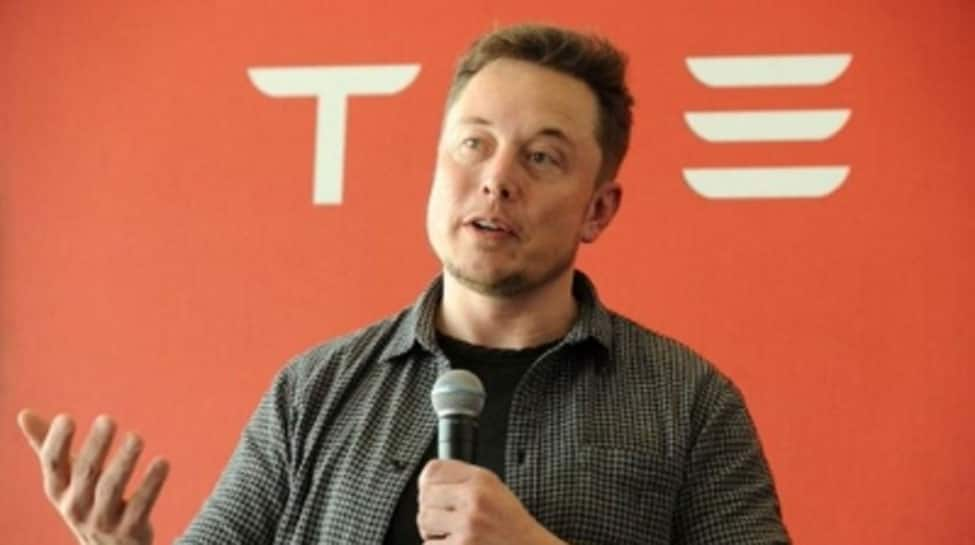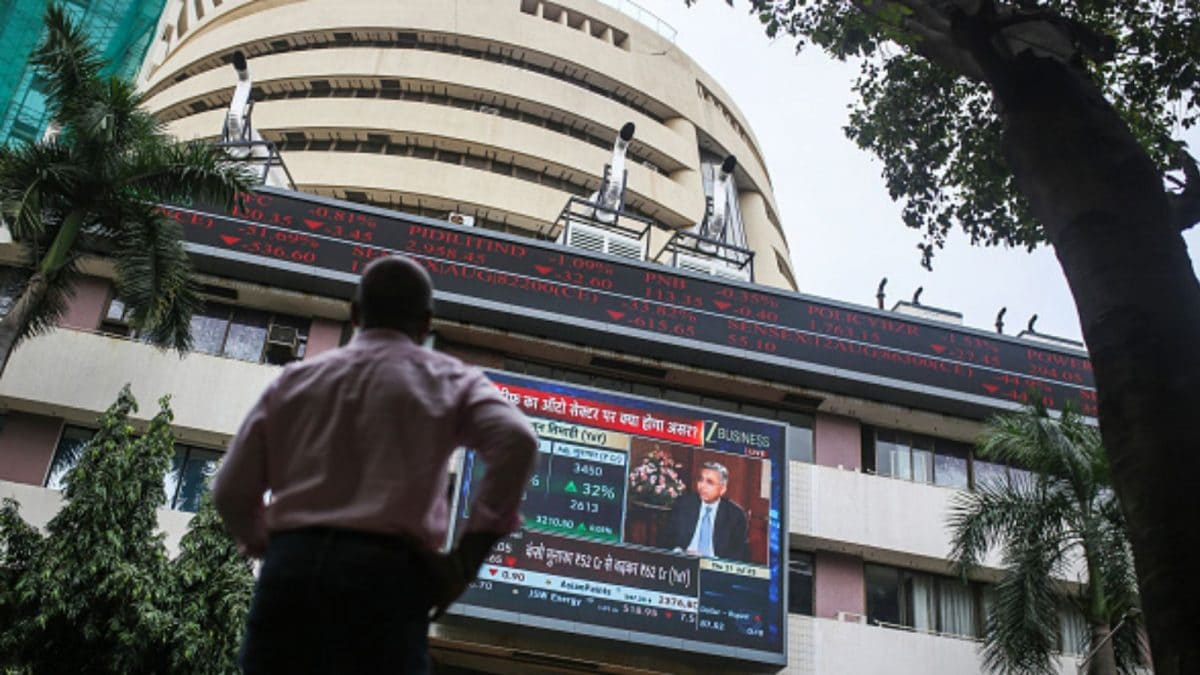Business
Orkla India IPO Gets 2.7x Subscription On Day 2: Should You Apply? Check GMP, Other Details

Last Updated:
Orkla India IPO GMP Today: Unlisted shares of Orkla India are currently trading at Rs 798 apiece, which is a GMP of 9.32%, indicating mild listing gains for investors.

Orkla India IPO Day 2.
Orkla India IPO GMP Today: The initial public offering (IPO) of Orkla India, which owns spices and condiments brands MTR and Eastern, witnessed its second day of bidding today, Thursday, October 30. The Rs 1,667.5-crore mainboard IPO will be closed on October 31. The price band has been fixed at Rs 695 to Rs 730 per share.
On the second day of bidding on Thursday, the IPO received a 2.71x subscription, garnering bids for 4,33,14,220 shares as against the 1,59,99,104 shares on offer. Its retail category has received a 2.12x subscription, while the NII (non-institutional investor) quota has received a 7.59x subscription. The QIB category received a 0.06x subscription.
On Tuesday, the company raised around Rs 500 crore from anchor investors, a day before its maiden public opening for subscription. The allotment saw participation from a strong mix of leading domestic and global institutional investors.
Orkla India IPO GMP Today
According to market observers, unlisted shares of Orkla India Ltd are currently trading at Rs 798 apiece in the grey market, against the upper IPO price of Rs 730. It means a grey market premium (GMP) of 9.32%, indicating mild listing gains for investors.
The GMP is based on market sentiments and keeps changing. ‘Grey market premium’ indicates investors’ readiness to pay more than the issue price.
Orkla India IPO: Should You Apply?
Brokerages hold mixed views on the Orkla India IPO. According to SBI Securities, the company is virtually debt-free, maintains healthy return ratios and margins, and consistently generates stable cash flows of Rs 300-400 crore annually. Its flagship brands, MTR and Eastern, command a strong presence in Karnataka and Kerala.
Over the past three years, Orkla has reported a CAGR of 5% in sales, 12.9% in EBITDA, and 22.9% in PBT. However, its adjusted profit after tax (PAT) fell from Rs 338 crore in FY23 to Rs 289 crore in FY25, primarily due to a one-time tax reversal in FY23.
SBI Securities noted that at the upper end of the price band of Rs 730 per share, the IPO is valued at 34.6 times its FY25 earnings on a post-issue basis. The brokerage believes the issue appears fairly valued considering the company’s growth record and has assigned it a ‘Neutral’ rating, preferring to monitor its performance post-listing.
In contrast, Arihant Capital has given a ‘Subscribe for long term’ recommendation, citing Orkla India’s capital-efficient and debt-free business model that ensures steady cash flow generation and robust margins. It values the company at a P/E of 31.68 times FY25 earnings, reflecting its leadership in key categories, strong profitability, and long-term growth potential.
For FY25, Orkla India posted revenue of Rs 2,394.7 crore, adjusted EBITDA of Rs 396.4 crore (margin of 16.6%), and PAT of Rs 255.7 crore (margin of 10.7%). Arihant Capital highlighted that the company’s return ratios remain among the best in the sector, with ROCE (return on capital employed) at 32.7%, significantly outperforming its peers.
Orkla India, formerly known as MTR Foods, is a multi-category Indian food company. It manufactures products as spices and masalas, ready-to-eat, sweets and breakfast mixes, under prominent brands such as MTR, Rasoi Magic, and Eastern.
The company sells its products under the brands MTR and Eastern.
Orkla India will make its debut on the stock exchanges on November 6.
Orkla India IPO: Valuation, Lot Size & Price Band
The company has fixed a price band of Rs 695 to Rs 730 per share, aiming for a valuation of around Rs 10,000 crore at the upper end.
The company’s 1,667.5-crore IPO is a complete offer for sale (OFS) of 2.28 crore equity shares by promoter and other shareholders, with no fresh issue component. Under the OFS, promoter Orkla Asia Pacific Pte and shareholders — Navas Meeran and Feroz Meeran are offloading shares.
Currently, promoters — Orkla Asia Pacific Pte. Ltd and Norwegian industrial investment company Orkla ASA — hold 90 per cent stake, while Navas Meeran and Feroz Meeran own 5 per cent stake each in the company.
Since it is an OFS, the company will not receive any proceeds from the IPO and the entire money will go to the selling shareholders.
Orkla India IPO: Closing, Allotment, Listing Dates
The IPO will remain open for public subscription between October 29 and October 31. Its share allotment will be finalised on November 3, while the stock listing is scheduled to take place on November 6 on both the BSE and the NSE.

Haris is Deputy News Editor (Business) at news18.com. He writes on various issues related to personal finance, markets, economy and companies. Having over a decade of experience in financial journalism, Haris h…Read More
Haris is Deputy News Editor (Business) at news18.com. He writes on various issues related to personal finance, markets, economy and companies. Having over a decade of experience in financial journalism, Haris h… Read More
October 30, 2025, 10:28 IST
Read More
Business
TDS alert! Important February compliance dates you must track– Check Full list

New Delhi: February 2026 brings a series of important deadlines related to Tax Deducted at Source (TDS) that taxpayers and deductors should not overlook. From issuing TDS certificates to submitting mandatory statutory forms, these compliance dates play a key role in ensuring smooth and accurate tax reporting. Businesses, employers, and government offices must stay alert and complete the required filings on time to avoid penalties or complications under the Income-tax Act. Keeping track of these dates can help ensure hassle-free compliance and prevent last-minute stress.
February 14:
– Deadline for issuing TDS certificate under Section 194-IA for tax deducted on transfer of immovable property in December 2025.
– Deadline for issuing TDS certificate under Section 194-IB for tax deducted on rent paid by individuals or HUFs in December 2025.
– Deadline for issuing TDS certificate under Section 194M for tax deducted on contractual or professional payments made in December 2025.
– Deadline for issuing TDS certificate under Section 194S for tax deducted on transfer of virtual digital assets by specified persons in December 2025.
February 15:
– Deadline for government offices to furnish Form 24G where TDS/TCS for January 2026 was deposited without generating a challan.
– Deadline for issuing the quarterly TDS certificate for non-salary payments for the quarter ended December 31, 2025.
Business
Musk’s net worth soars past $800 billion after SpaceX‑xAI deal

New Delhi: US entrepreneur Elon Musk’s net worth surged past the $800 billion mark after SpaceX acquired his artificial‑intelligence firm xAI, making him the richest person in history by a wide margin.
Musk’s net worth reached roughly $852 billion, almost $578 billion higher than the world’s second-wealthiest person, Google co-founder Larry Page, whose net worth is estimated at $281 billion.
The merger took the combined value of the company to $1.25 trillion and added about $84 billion to Musk’s fortune, according to reports.
Before the merger, Musk owned about 42 per cent of SpaceX which was valued at $800 billion and roughly 49 per cent of xAI, which was valued at $250 billion after a recent private fundraising round. Post‑merger, Musk’s stake in the combined entity touched 43 per cent, worth about $542 billion and SpaceX became Musk’s largest holding by a wide margin, the reports said.
Musk also retains about 12 per cent of Tesla, valued at approximately $178 billion, along with Tesla stock options, estimated at $124 billion. Further, in addition to these, Musk also receives a shareholder‑approved Tesla pay package up to $1 trillion in additional Tesla stock, before taxes over the next decade and the cost of unlocking restricted shares, if performance targets are met.
He crossed several wealth milestones in the past four months such as $500 billion, $600 billion and $700 billion, driven by SpaceX valuation gains and a Delaware Supreme Court ruling that restored his Tesla options.
Musk earlier said that SpaceX’s Starship will begin delivering the much more powerful V3 Starlink satellites to orbit in 2026, with each launch adding more than 20 times the capacity to the constellation as the current Falcon launches of the V2 Starlink satellites.
It will enable launches “every hour carrying 200 tons per flight” and ultimately lifting millions of tons to orbit and beyond, Musk has shared his plan.
Starship will also launch the next generation of direct-to-mobile satellites, which will deliver full cellular coverage everywhere on Earth, he added.
Business
Stock Market Updates: Sensex Falls 300 Points, Nifty Tests 25,700; Nifty IT Drops Over 5%

Last Updated:
Indian equities paused on Wednesday after the previous session’s sharp surge triggered by the India–US trade agreement

Stock Market Today.
Sensex Today: Indian equities paused on Wednesday after the previous session’s sharp surge triggered by the India–US trade agreement. The pact, which reduced US tariffs on Indian goods to 18 per cent from 50 per cent, had buoyed sentiment and removed a major overhang, but markets turned cautious as traders booked profits.
A decline in information technology stocks further weighed on the mood.
At the open, the BSE Sensex was around 83,430, down 309 points or 0.37 per cent, while the Nifty 50 stood at 25,663, lower by 65 points or 0.25 per cent.
Broader markets also traded in the red, with the Nifty MidCap index slipping 0.48 per cent and the Nifty SmallCap index easing 0.18 per cent.
The Nifty IT index tumbled more than 5.5 per cent, led by losses in Persistent Systems, LTIMindtree, Infosys, HCL Tech, Coforge, TCS, Mphasis and Tech Mahindra.
Global cues
US markets ended lower overnight as investors rotated out of technology stocks into sectors more closely tied to economic recovery. The Dow Jones slipped 0.34 per cent, the S&P 500 declined 0.84 per cent, and the Nasdaq fell 1.43 per cent at the close.
Asian markets were mixed in early trade on Wednesday amid the absence of strong triggers. China’s CSI 300 index dropped 0.29 per cent, Hong Kong’s Hang Seng edged down 0.05 per cent, and Japan’s Nikkei lost 0.61 per cent. In contrast, South Korea’s Kospi rose 0.54 per cent.
In commodities, spot gold gained over 1 per cent to $5,002 per ounce, while spot silver advanced 0.69 per cent to $85.70 per ounce.
On the macro front, investors await the release of S&P Global/HSBC composite and services PMI final data for January from both India and Japan.
February 04, 2026, 09:13 IST
Read More
-

 Sports1 week ago
Sports1 week agoPSL 11: Local players’ category renewals unveiled ahead of auction
-

 Entertainment1 week ago
Entertainment1 week agoClaire Danes reveals how she reacted to pregnancy at 44
-

 Sports1 week ago
Sports1 week agoCollege football’s top 100 games of the 2025 season
-

 Business1 week ago
Business1 week agoBanking services disrupted as bank employees go on nationwide strike demanding five-day work week
-

 Politics1 week ago
Politics1 week agoTrump vows to ‘de-escalate’ after Minneapolis shootings
-

 Sports1 week ago
Sports1 week agoTammy Abraham joins Aston Villa 1 day after Besiktas transfer
-

 Entertainment1 week ago
Entertainment1 week agoK-Pop star Rosé to appear in special podcast before Grammy’s
-

 Tech1 week ago
Tech1 week agoBrighten Your Darkest Time (of Year) With This Smart Home Upgrade





